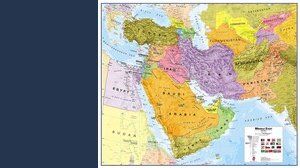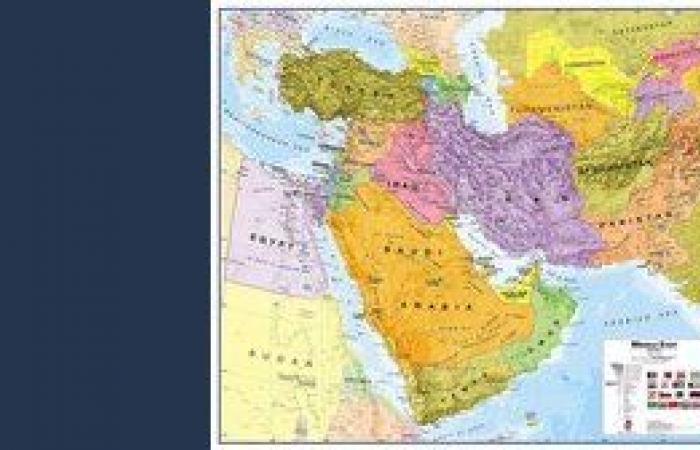If they US and Western sanctions taken with the war in Ukraine were to transform the Russia in a pariah stateso far the aim has not been fully achieved.
There network of friendly countriesfor political, economic and ideological convenience, Moscow is in fact made up of various nations that do not intend to give up the opportunities that they can exploit with ties – more or less explicit – with the Russian nation.
In an increasingly fragmented world made up of rival countries, this relationship between Putin’s Russia and other states takes on multiple meanings. As explored by an analysis by Greg Sullivan and Anthony Halpin in Bloomberg, many join Moscow to strengthen common interests at summits like the G20 and to rival Western powers in clubs like the BRICS.
Some are driven by pragmatic interests, focusing on energy, commercial or economic considerations. For others, the military cooperation or weapons they are at the center of the agreement. In most cases, they share a common vision with Russia: the desire to supplant the US-led world order after the Cold War. Here are the countries that are saving Russia from isolation.
China
China was a lifeline diplomatic and economic for Moscow. Russia buys electronic products, industrial equipment and cars, while sells oil and gas to its Asian neighbors, even if – as in the case of gas – at a discount compared to what it once earned supplying Europe.
Bilateral trade reached a record high 240 billion dollars in 2023. Furthermore, the dragon is a partner that shares the Kremlin’s goal of challenging the US-led order and excluding Washington-led alliances from what they see as their sphere of influence.
Furthermore, Russia and China are increasingly coordinating their positions at the United Nations Security Council, where both wield vetoes and make common cause against the United States. There military cooperation is deepening, and Russia has sold some of its most advanced weapons systems to China.
Saudi Arabia
Saudi Arabia went out of its way not to condemn Russia after the war began. Putin also visited the Kingdom in December in a rare foreign foray that showed he was still welcome in some parts of the world.
Aside from the partnership with OPEC+, the Kingdom has benefited from Russian help to avoid pariah status. Putin was one of the few leaders to embrace Crown Prince Mohammed bin Salman at the 2018 G-20 summit, two months after his country’s agents killed Washington Post columnist Jamal Khashoggi.
US President Joe Biden has since reversed course on an earlier promise to isolate Riyadh after Khashoggi’s killing and has sought to bolster the two countries’ alliance. But as Saudi foreign policy is increasingly transactional and driven by economic interests, it is likely that i ties with Moscow they do nothing but deepen.
Iran
Russia turned to Iran for drones for use in its war in Ukraine and is building a trade route with Tehran connecting it to India, which could help weaken the impact of international sanctions.
Russian and Iranian officials also discussed strengthening financial and banking cooperation to ease sanctions pressure. Iran is looking to Russia for weapons including air defense systems and fighter jets to replace obsolete equipment. He also relied on Moscow to build the Bushehr nuclear power plant. Tehran has joined Russia in supporting President Bashar al-Assad in the war in Syria and shares Moscow’s hostility towards the American presence in the Middle East.

Türkiye
Putin juggles geopolitical rivalry with Turkish President Recep Tayyip Erdogan in places like Syria, Libya and the Caucasus region, while also promoting trade to his third-largest export market. There Türkiye has also become a key hub for the indirect imports of sanctioned goods that Russia seeks, and help for Putin to maintain his country’s global ties.
While siding with Ukraine in the war, Erdogan has refused to join sanctions against Russia, which is a important gas supplier to Turkey and is building its first nuclear power plant. Turkey’s tourism and agriculture industries rely heavily on the Russian market. Erdogan also presented himself as a mediator between Ukraine and Russia, helping to hammer out agreements on grain shipments and prisoner exchanges.
India
India, the world’s third largest consumer of crude oil, was a major buyer of Russian oil at discounted prices since the invasion of Ukraine, but stricter enforcement of US sanctions that seek to stifle the flow of petrodollars into Kremlin coffers is now destabilizing supplies. The relationship with India gives legitimacy to Russia as it “courts” the so-called Global South.
Furthermore, Russia is also a long-standing and reliable supplier of weapons. Moscow has been willing to help the South Asian nation by using its veto power at the United Nations Security Council to support Indian interests. Strong ties with Russia also provide a counterweight to other major global powers, helping India maintain strategic autonomy.
South Africa
South African President Cyril Ramaphosa he refused to condemn Putin for the war, or to support UN resolutions censuring Moscow for the invasion. The two nations are both members of BRICS and their forums have provided their leaders with the opportunity to interact regularly. Ramaphosa persuaded Putin to skip a BRICS summit in Johannesburg last year and instead attend virtually, saving Pretoria from having to decide whether to arrest him under the ICC warrant.
Although trade between Russia and South Africa is negligible, the two countries have long-standing historical ties that stem from the proactive stance taken by the Soviet Union against white minority rule. A number of senior members of the African National Congress sought refuge and underwent military training in Russia during the apartheid era. Russian companies were in the running to build new nuclear power plants in South Africa during former president Jacob Zuma’s tenure, although plans to issue a contract have been frozen since Ramaphosa took office in 2018 due to costs.
Hungary
Prime Minister Viktor Orban’s government has maintained close ties with Putin, with the Hungarian leader meeting his Russian counterpart in Beijing last October. This has provided Putin with an ally within the EU, who has variously hindered financial aid to Ukraine, threatened to scupper Kiev’s accession talks to the bloc and even delayed the accession of Ukraine for more than a year. Sweden to NATO.
Hungary is one of the few EU nations that still receives Russian gas, and the Russian nuclear company Rosatom maintains a leading role in the expansion of its only nuclear power plant. Meanwhile, Orban is gaining Moscow’s support for his ideological alternative to the US-led international order.
North Korea
The growing friendship with Kim Jong Un has brought benefits to Russia. The United States, South Korea and others claim that North Korea is isending huge quantities of artillery shells and ballistic missiles with short-range nuclear capability.
In exchange, Russia is accused of supplying Pyongyang with food, raw materials and parts used in weapons production. Russia also vetoed a United Nations Security Council resolution to expand a panel of experts to report on developments in North Korea’s nuclear arsenal.






